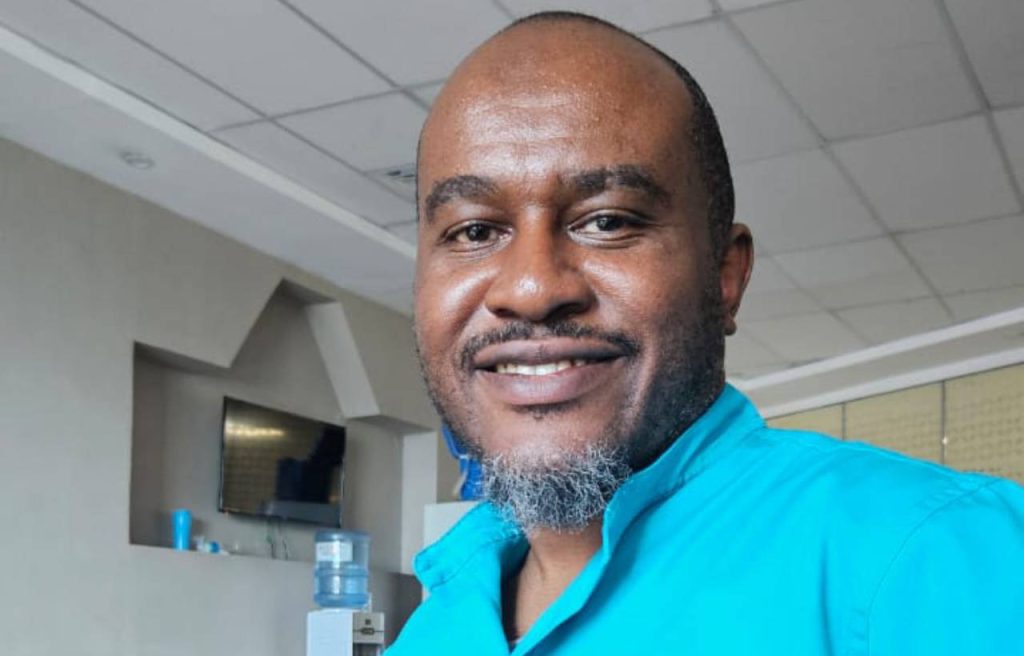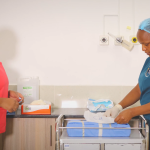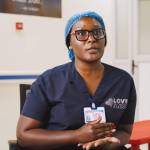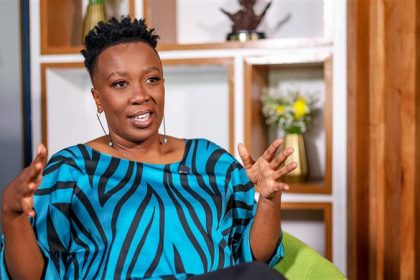Many childless women and couples turning to IVF (which is not covered by Social Health Insurance Act) and the ‘Surrogacy Bill’ is still pending in Parliament
By Yvonne Kawira
”I am finally a mother!” exclaimed Anna Kilemi*, her face glowing with joy as she proudly displayed a baby basket holding a tiny bundle of joy. Anna beamed as she revealed the culmination of a deeply emotional 13-year journey.
The road to motherhood for Anna was anything but smooth. Years of failed attempts to conceive were laced with heartbreaks. “I was mocked and abandoned by three men when they discovered I couldn’t have children. Each marriage ended in tragedy, leaving me desperate for a child I could call my own,” Anna recalled in an interview with Willow Health.
Her struggle was not just emotional—it was deeply medical. Doctors discovered she had blocked fallopian tubes, one filled with persistent fluid, and her uterus was eventually removed due to uncontrollable bleeding.
“When the idea of surrogacy was suggested, I was already losing hope, but it seemed like my last chance,” she confessed.
Anna’s journey to surrogacy wasn’t immediate. It took three years of saving to finance her dream and “I was willing to do whatever it took to become a mother” she says of her journey that ended in a Nairobi fertility clinic. “It initially cost about Ksh1.6 million, but with extra tests, legal processes and medical care, the total amounted to slightly over Ksh4 million.”
The cost is unlikely to go down considering that as Kenya transitions from the National Hospital Insurance Fund (NHIF) to the Social Health Insurance Fund (SHIF) under the Social Health Insurance Act (SHIA), fertility treatments like IVF are not covered.
While SHIF includes coverage for maternal health, surgical procedures, and treatments for chronic illnesses, in vitro fertilization (IVF) is not listed among covered services.
Anyway, with the help of her surrogacy agency, Anna was matched with a surrogate who agreed to carry her baby. Sperm from a donor was put in her ovary and “I had to get some injections for a few weeks before the harvesting of the eggs was done.”
The emotional weight was enormous for both women and Anna says “we both underwent therapy sessions and further medical tests were required to ensure everything went smoothly. We even had a lawyer draft an agreement, protecting both of us through the process.”
The two women entered into a non-disclosure agreement, shielding their identities and details from the public.
The nine-month wait was agonizing for Anna. Every moment felt fragile, the anticipation a source of hope and anxiety. When the time finally came, Anna was present for the birth, experiencing firsthand the magical moment.
“She has my personality; she even looks just like me. Except for close family, I’ve kept this private. I don’t want people prying into my life. But I am grateful for this journey and the joy of finally being a mother.”
Surrogacy has provided a lifeline to countless parents like Anna.
In Kenya, there are two main approaches: traditional surrogacy, where the surrogate is biologically related to the child, and gestational surrogacy, where the intended parents’ egg and sperm (or donor gametes) are used, and the surrogate has no genetic connection to the baby. Gestational surrogacy is the preferred option, as the surrogate acts solely as the carrier, eliminating the complexities of biological ties.

Dr Paul Koigi, a Consultant Obstetrician and Gynaecologist specializing in reproductive endocrinology and fertility, says “gestational surrogacy is a solution for women who, for medical reasons, cannot carry a pregnancy. This includes those without a uterus, those who have lost their uterus due to cancer or fibroids, and women with conditions like endometriosis or ovarian torsion,” he explains. Surrogacy allows these women a chance at parenthood that traditional methods can’t offer.
However, surrogacy in Kenya faces several challenges, one of the biggest hurdles being the absence of surrogacy laws.
Dr Koigi elaborates: ”There is no explicit legal framework governing surrogacy in Kenya. As of now, surrogacy agreements are merely contracts between the surrogate and the intended parents. The Assisted Reproductive Technology Bill, developed with the input of several medical bodies, is currently under consideration, but until it passes, legal uncertainties remain.”
One of the most complex issues is parental rights and custody. In Kenya, the woman who gives birth is recognized as the legal mother. This means that intended parents must go through an adoption process to gain legal rights over the child, adding another layer of difficulty.
“This can be especially challenging for foreign couples, as some countries do not recognize surrogacy arrangements made abroad,” Dr Koigi notes, adding that Kenya’s affordability has made it a medical tourism hotspot, but the lack of surrogacy laws introduces risks for international clients.
Another significant barrier is cultural and religious opposition.
“Surrogacy challenges deep-rooted beliefs in many Kenyan communities,” says Dr Koigi. ”Many families place tremendous value on biological connections, and the idea of a child born through surrogacy can lead to stigmatization. In some religious circles, surrogacy is even seen as morally questionable, creating additional social hurdles for intending parents.”
Despite the challenges, surrogacy remains a beacon of hope for those who had given up on parenthood.
And the Assisted Reproductive Technology Bill, which has not been passed into law, is one critical piece of legislation aimed at providing clear legal guidelines for surrogacy and other assisted reproductive technologies.
Developed with input from the Kenya Obstetrical and Gynaecological Society (KOGS) and the Fertility and Andrology Society of Kenya (FASK), the bill—if passed—would define parental rights in surrogacy agreements, simplify the legal adoption process for parents who use surrogates, and ensure that both parties are protected under the law—particularly mothers who do not give birth to the child.
Other legal complexities regard birth certificates and recognition of parental rights for intended parents. Currently, both the surrogate mother and the genetic father are listed on the birth certificate, but the legal recognition of the intended parents remains challenging until formal laws are passed.
Editor’s note: Anna Kilemi’s name has been changed due to a non-disclosure agreement with her surrogate and agency.
























I guess doctor Mbuvi is such a good doctor, last year Dec I went through the same pain when the doctors new very well that I’m not supposed to labor. I labored for 24hrs only to be refered to another hospital, I met doctor Mbuvi who operated me but it was too late 😭😭my baby had already gone, he came the next day to check if I was ok 😞 and comforted me. Mr Mbuvi be blessed even though it was too late but you touched my heart ❤️
Bringing out real issues facing real people! Nice read!